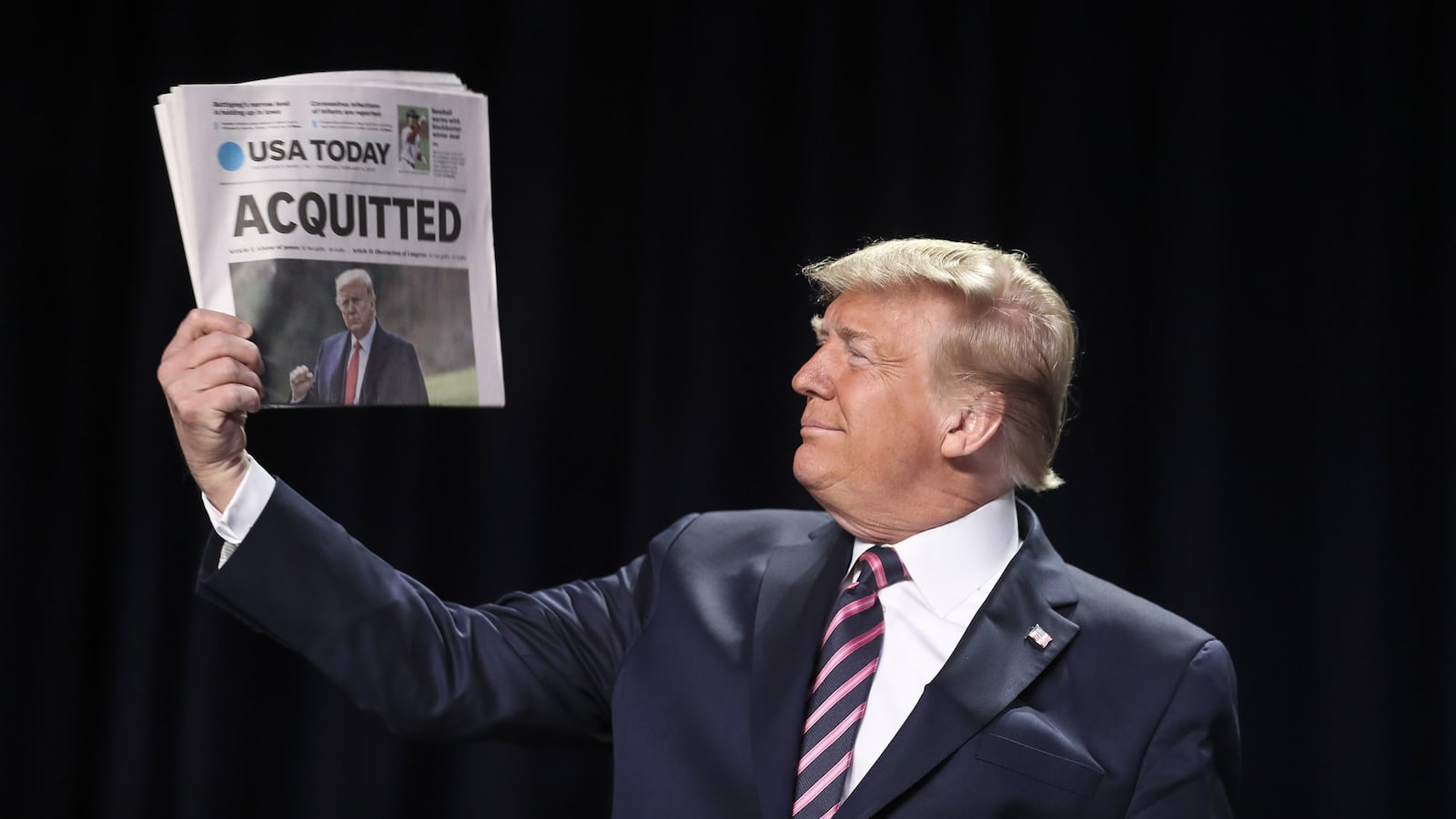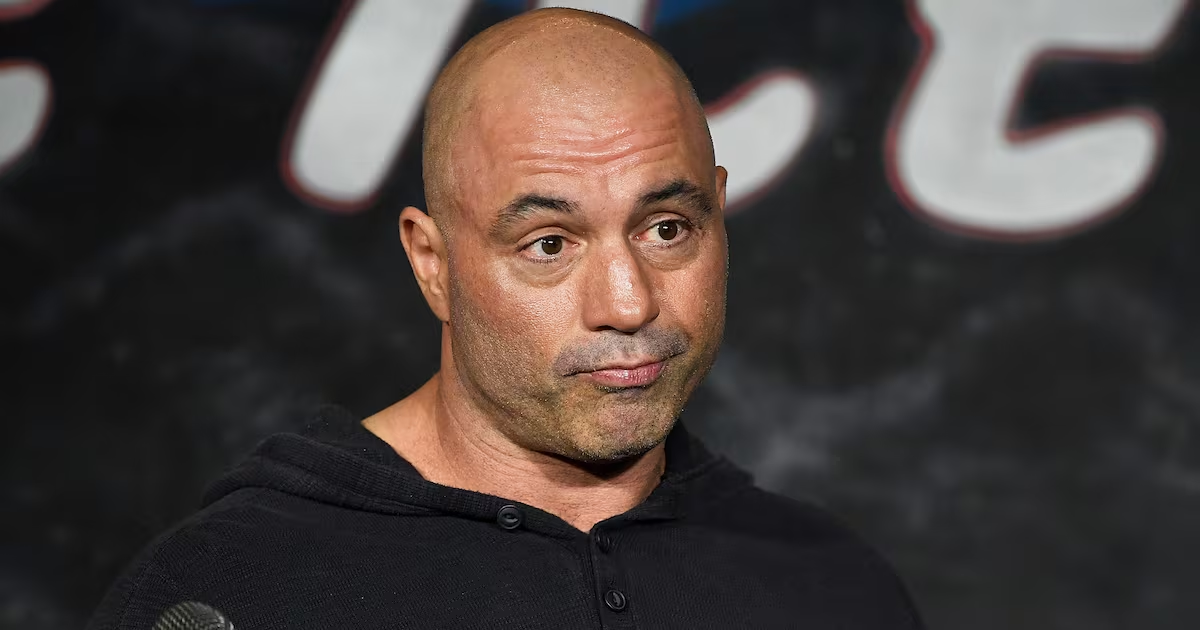Donald Trump dragged the National Prayer Breakfast into his personal gutter this morning, questioning the faith of Senator Mitt Romney, a devout Mormon, and House Speaker Nancy Pelosi, a devout Catholic.
“I don't like people who use their faith as justification for doing what they know is wrong,” said the president.
The subtext, of course, was Trump’s impeachment, which Pelosi led and which Romney supported. And while Democrats are predictably outraged, Trump’s remarks were so insulting that they may cost him support among conservative Christians as well.
In other words, according to Trump, Romney not only lied about his true motivations, but used his faith as a false pretext for an immoral political act.
That is profoundly insulting, even by Trump’s standards of schoolyard nicknames and “locker-room talk.”
Romney, of course, is not only a devout Mormon who served as a bishop of the church in Boston in the '80s; he has described his impeachment vote as a matter of profound moral reflection–values esteemed not only by fellow Mormons but by people of faith of all denominations.
“Does anyone seriously believe that I would consent to these consequences other than from an inescapable conviction that my oath before God demanded it of me?” Romney said before voting to convict Trump of abuse of power, becoming clearly emotional as he spoke.
Trump’s insult is especially galling coming at the National Prayer Breakfast, which for half a century has been a non-partisan, apolitical forum for religious Americans to come together and talk about their faith, not brag about their personal political triumphs, as Trump did today. (By contrast, here’s President Obama’s 2010 speech, widely praised for its comity and good taste.)
The irony was especially bitter because prior to Trump, House Speaker Nancy Pelosi spoke of her personal faith, and keynote speaker Arthur Brooks said that “contempt is ripping our country apart.”
Trump proved that point quite handily. (After the event, Pelosi quipped that Trump is “talking about things that he knows little about: faith and prayer,” adding that his digs at her and Romney were “particularly without class.”)
Remember, too, that in the 2016 presidential election, 21 percent of predominantly Mormon Utah voted for Evan McMullin, a longshot third-party candidate who made Trump’s personal moral failings a centerpiece of his campaign.
Yes, Trump still won the state handily, garnering 45 percent of the vote to Hillary Clinton’s 27 percent. And deep-red Utah is likely to stay in the Republican column this year as well.
But there are signs of a slow drip-drip-drip that could erode Trump’s conservative Christian firewall.
In December, the chief editor of Christianity Today, a leading centrist evangelical magazine, called for Trump’s removal from office, describing his extortion of the Ukrainian government as “not only a violation of the Constitution; more importantly, it is profoundly immoral.”
And last week, Robb Ryerse, an evangelical pastor who ran for Congress as a Republican in 2018, penned an editorial in Time magazine calling Trump’s relationship with religious conservatives “transactional” and saying that Trump “doesn’t live by nor ostensibly even aspire to the values of most of these voters.”
Wrote Ryerse, “Trump is an anathema to everything I was taught to love about Jesus, everything I was taught about how to live out my faith. His disdain for decency, disrespect toward basic tenets of right and wrong and complete disregard for the most vulnerable among us could not be more fundamentally un-Christian.”
Ryerse is now directing a national organization called Vote Common Good, currently holding rallies around the country to persuade evangelicals to abandon Trump.
Again, none of this represents a sea change among white evangelical Protestants, where support for Trump still hovers around 70 percent.
Christian conservatives have made their Faustian bargain with Trump, and they have benefited handily for selling out their souls: two arch-conservative Supreme Court Justices who might vote to overturn or limit Roe v. Wade this year, a blank check for churches to engage in political activity (thanks to the repeal of the “Johnson Amendment”), the weaponization of “religious liberty” against women and LGBTQ people, and “school choice” as the federal government’s official education policy.
But if that 70 percent approval rating drops to 60 percent or lower, or if disgusted conservative evangelicals simply stay home, rather than vote for Trump on the one hand, or a pro-choice candidate on the other, that could make a difference in Florida, Arizona, and other swing states.
Even if the numbers stay high, Trump’s over-the-top remarks at the National Prayer Breakfast may make it more and more difficult for his circle of “court evangelicals” to continue what has been a very successful strategy for the last three years: lay low and score huge victories while public attention is elsewhere.
Outside the Christian Right, who even knows what the “Johnson Amendment” was? Yet its repeal was a massive triumph that will have a significant impact on the 2020 election.
That strategy, though, becomes a lot less tenable when Trump questions the faith of lifelong Mormons at a prayer breakfast. For the evangelical “devil’s bargain” to work, people need to keep their heads down and their mouths shut.
Neither of which Donald Trump does very well.






